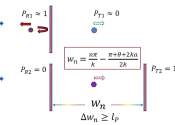Shark may avoid cold blood by holding its breath on deep dives
Scalloped hammerhead sharks stay warm as they descend into cold, deep water off the coast of Hawaii, suggesting the cold-blooded species may maintain its body temperature on dives by holding its breath, according to new research ...









